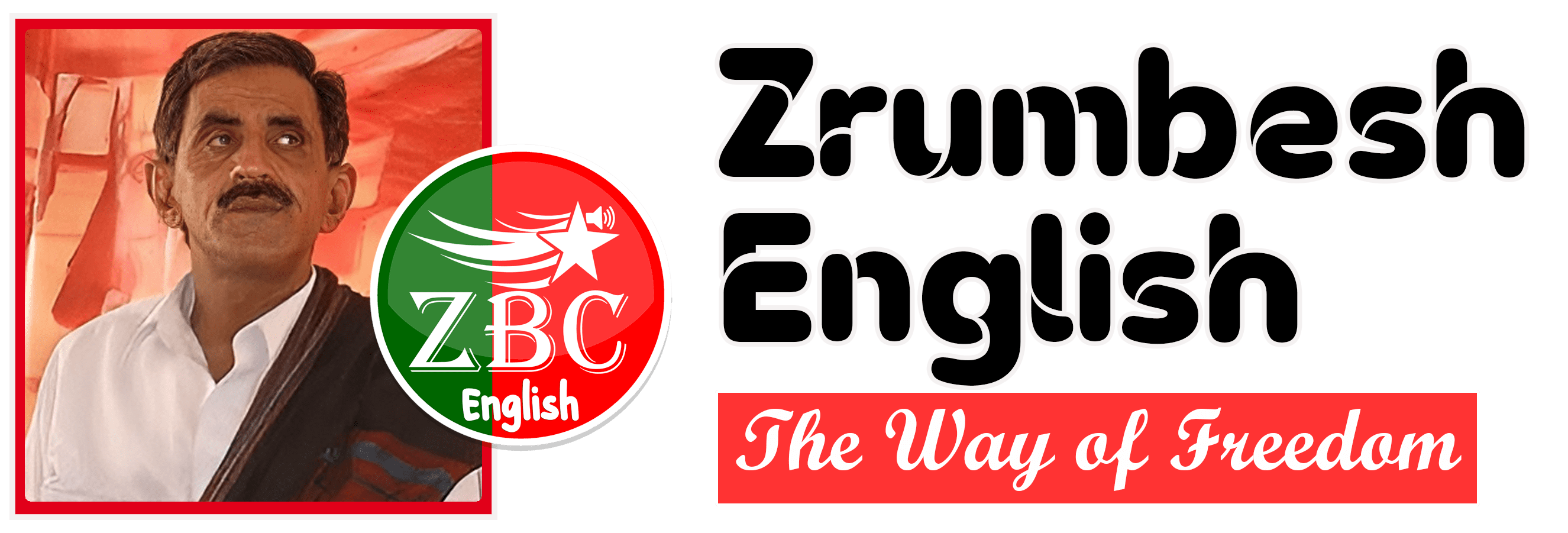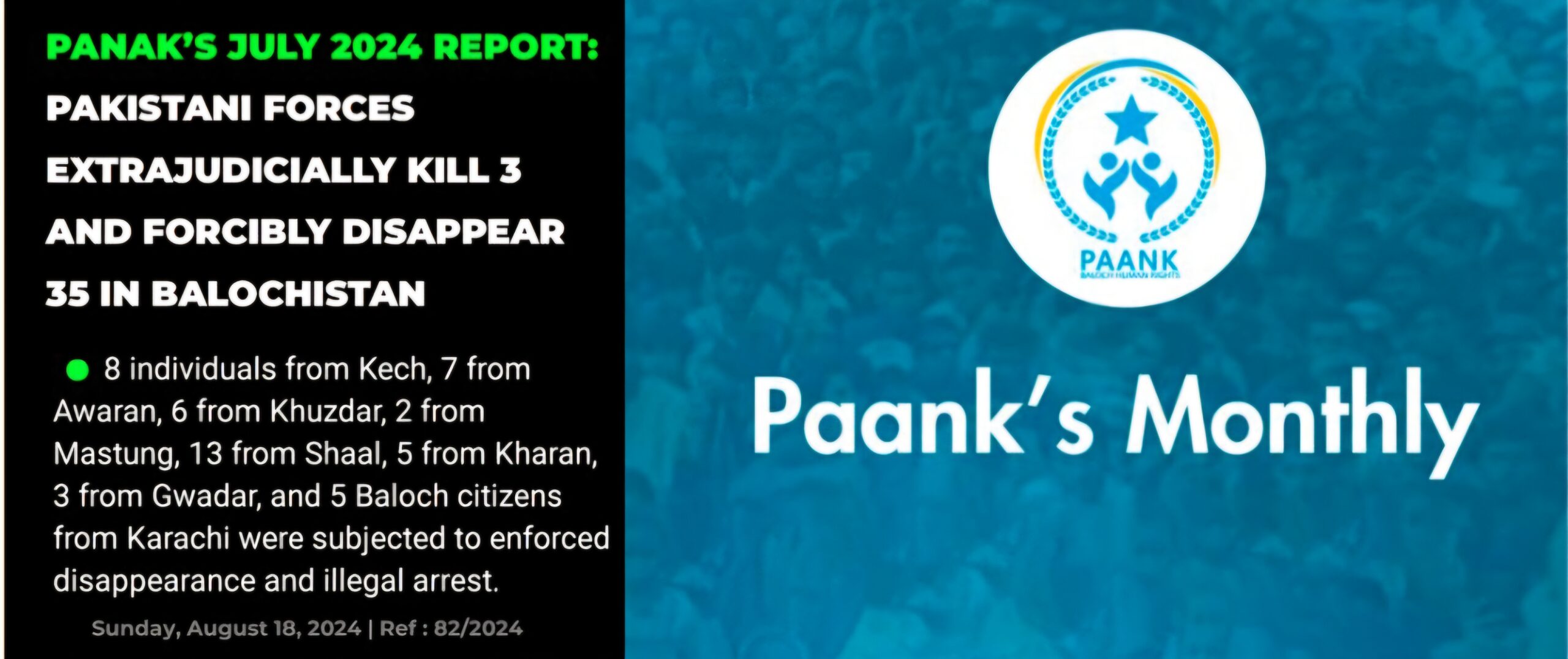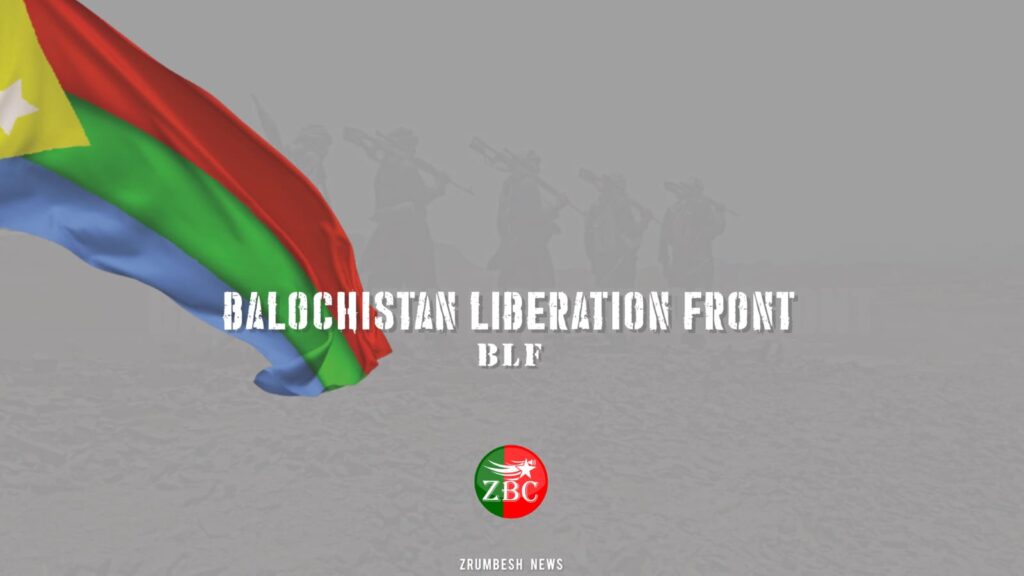⦿ 8 individuals from Kech, 7 from Awaran, 6 from Khuzdar, 2 from Mastung, 13 from Shaal, 5 from Kharan, 3 from Gwadar, and 5 Baloch citizens from Karachi were subjected to enforced disappearance and illegal arrest.
According to Paank monthly report, Pakistani forces extrajudicially killed three people and forcibly disappeared 35 others in Balochistan during July.
BNM’s human rights Department Paank publishes detailed monthly reports on the human rights situation in Balochistan, with a focus on enforced disappearances. These reports, available in both English and Urdu, provide comprehensive details of the victims.
The July report reveals that, in addition to the 35 enforced disappearances, many individuals were subjected to illegal detention. The report specifically notes that eight people from Kech, seven from Awaran, six from Khuzdar, two from Mastung, thirteen from Shaal, five from Kharan, three from Gwadar, and five from Karachi were forcibly disappeared or illegally arrested.In Balochistan, the use of state violence against the families of the forcibly disappeared has disturbingly become the norm. Paank’s report expressed deep concern over this ongoing situation, citing the recent case of Zaheer Baloch, who was forcibly disappeared by the Police’s Counter-Terrorism Department (CTD) following his arrest on June 28, 2024. In response, his relatives staged a peaceful sit-in protest at Saryab Road, Shaal. However, instead of addressing their grievances and seeking a resolution, the authorities responded with brutality, torturing and arresting the protestors.
Panak also drew attention to the ongoing sit-in by the families of forcibly disappeared in Turbat, where they continue to protest despite scorching temperatures ranging from 45 to 48 degrees Celsius. Despite the severity of their plight, the government has largely ignored their demands. In another incident, Kocha village in Tehsil Naal, Khuzdar district, was besieged and attacked, resulting in the torture and injury of women, along with the enforced disappearance of six individuals. In response, the relatives blocked the CPEC-M8 link road in protest. Although the administration promised to release the detained individuals, this pledge remains unfulfilled.
Panak’s report also draws attention to the escalating state violence against the Baloch Raji Muchi , which has garnered worldwide concern. The report states that on July 28, 2024, the Baloch Yakjehti Committee organized a rally in Gwadar to protest against human rights violations, enforced disappearances, and extrajudicial killings in Balochistan. However, the government forcibly dispersed the peaceful rally, igniting protests across the region when Raji Muchi participants were blocked from attending. In Mastung, Hub Choki, and Turbat, protesters faced severe repression, with 14 injured in Mastung, including Abdul Muteeb Baloch, who sustained a critical head injury. In Turbat, 25 protesters were wounded, and one, Asghar Baloch, tragically died. The situation further deteriorated in Gwadar, where the FC, CTD police, and intelligence agencies used tear gas, live ammunition, and baton charges against the Raji Muchi protesters.
Reiterating its demand, Paank emphasized that the human rights situation in Balochistan continued to worsen in July. It accused Pakistani forces of violating both their own constitution and international human rights laws. In light of these ongoing abuses, Paank urged immediate international intervention and accountability to protect the fundamental rights of the Baloch nation.



